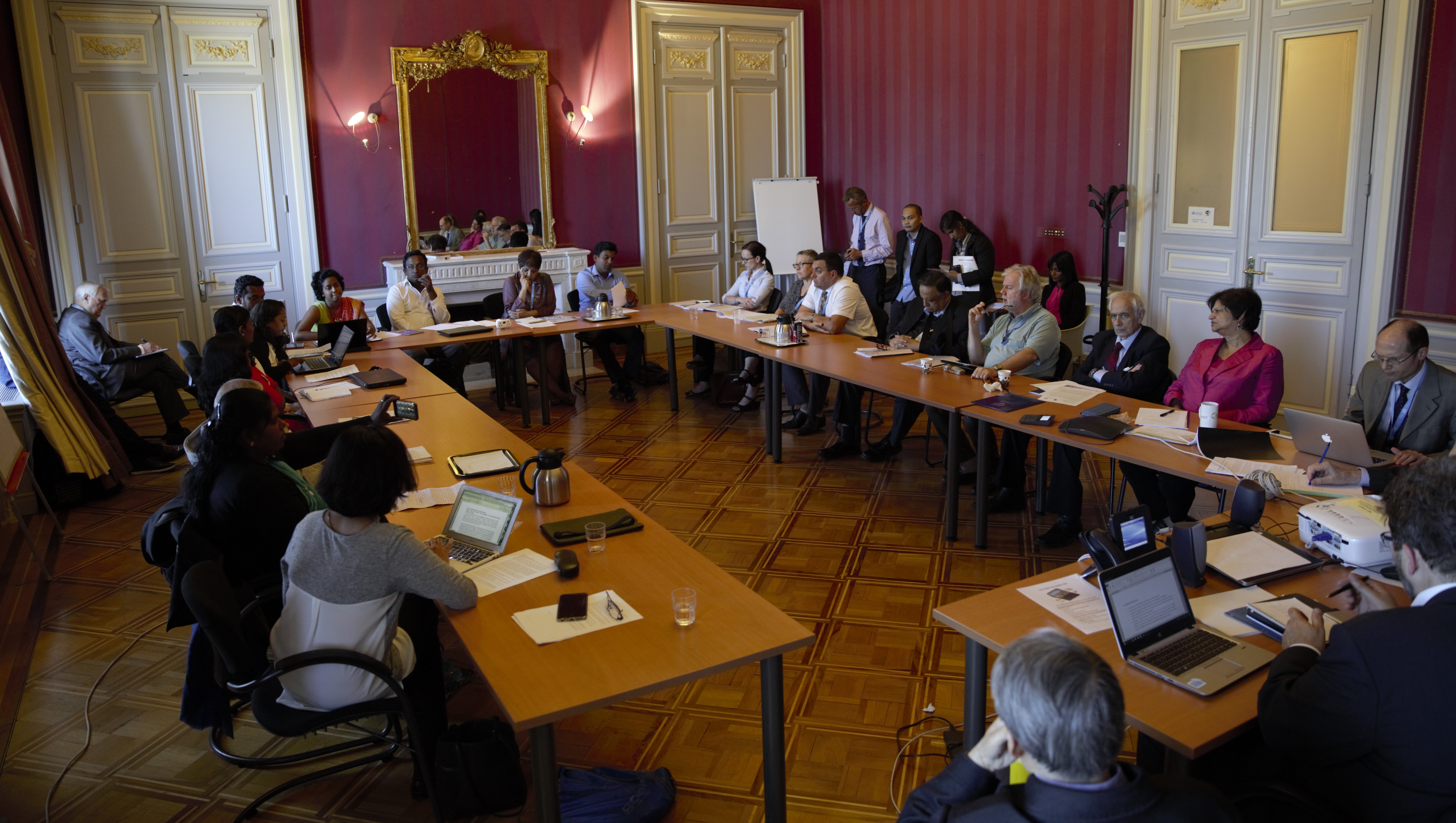Image: CESCR 61 Sri Lanka civil society briefing at Palais Wilson, Geneva. (c)s.dshapriya.
Speaking at a briefing for the members of The Committee on Economic, Social and Cultural Rights (CESCR) activist Shreen Saroor asked the CESCR to recommend that “the State should criminalize and administratively respond to the practice of female genital cut and send a clear and strong message that the practice is illegal, harmful and is considered child abuse and a violation of bodily integrity of girl children and women.”
Saroor also made 3 more recommendations tot the CESCR 61sts session which is on going in Geneva:
- The State must muster its political will to ensure that Muslim women are treated as equals under the law and immediately reform the Muslim Marriage and Divorce Act that treats Muslim women and girls discriminatorily.
- State must allow the option of Muslims marrying under the General Marriage Ordinance and raise the age of marriage of all citizens to 18.
- Repeal article 16 of the constitution and allow judicial review of all personal and discriminatory laws and practices in the country.
Text of the speech follows:
Discriminatory Laws and Practices.

I am representing Muslim women in Sri Lanka and Muslim of SL is 8.5% of the population.
Madam Chair, the Muslim Marriage and Divorce Act continues to render Muslim women and girls as second-class citizens. It requires adult women to obtain guardian’s consent, prohibits women from being Quazi’s or registrars, which are state-salaried positions, allows polygamy without conditions or consent of wives. There are also procedural and practical issues faced by women in the Quazi courts, which constrain their equal access to justice and due process.
The Act also permits child marriage by not stipulating the minimum age of marriage (a Quazi can permit even the marriage of a child under the age of 12) and it actually decriminalizes statutory rape stipulated in our penal code. Due to unconditional polygamy and multiple marriages being not registered, the underage child bride and her baby have immense social issues and most often these children would not have proper birth certificate thus enrolling them into a govt. schools is a huge challenge. In addition early marriage and early pregnancy within the Muslim community has direct consequences on the health and well-being of the girl children and it contributes to hindering their access to education and decent job.
The State has renounced its responsibility to reform MMDA on the ground that it is a matter for the Muslim community. Despite multiple committees, with predominantly Muslim men, appointed to review the MMDA since 1990, none of these efforts have been yet fruitful. The present-day MMDA was enacted in 1951 and stands as it is.
In 2017, recommendations by the CEDAW Committee to Sri Lankan state called for a unified family code in conformity with the convention.
We kindly request the committee to include in it’s concluding observation as recommendations:
- The State must muster its political will to ensure that Muslim women are treated as equals under the law and immediately reform the Muslim Marriage and Divorce Act that treats Muslim women and girls discriminatorily.
- State must allow the option of Muslims marrying under the General Marriage Ordinance and raise the age of marriage of all citizens to 18.
- Repeal article 16 of the constitution and allow judicial review of all personal and discriminatory laws and practices in the country.
We request the committee to ask the SL govt. the following question: What has the SL govt. done to address the above discrimination and violence faced by Muslim girls and women particularly in the light of the last MMDA reform committee appointed in 2009 has failed to submit a report in 8-years.
Female Genital Cut
Female genital cut (called Khatna or Kahfz) is practiced among sections within the Muslim community affecting girl children within a few months after birth and within the Dawoodi Bohra community at the age of 7. The effects and extent of the prevalence of the practice of FGC have not been subject to study in Sri Lanka because of the highly secretive nature of the practice. In 2016 a group affected women made submissions to UNICEF Sri Lanka, the National Human Rights Commission and Child Protection Authority. However these agencies have not yet taken any steps to address this issue.
We kindly request the committee to include in its concluding observation as recommendations.
The State should criminalize and administratively respond to the practice of female genital cut and send a clear and strong message that the practice is illegal, harmful and is considered child abuse and a violation of bodily integrity of girl children and women.
We request the committee to ask the SL govt. the following question: What is the State doing to address this harmful practice of FGC considering affected Muslim women have brought it to the notice of the State institutions?
Thank you.
